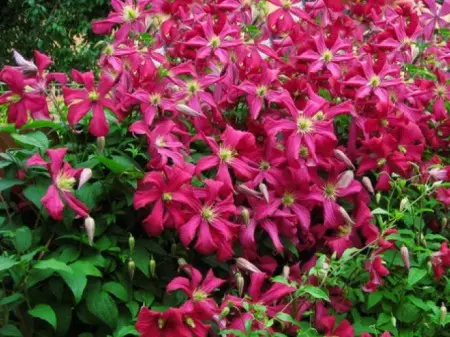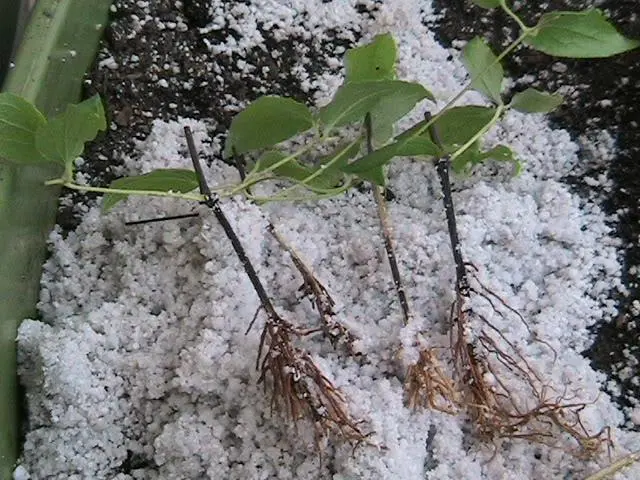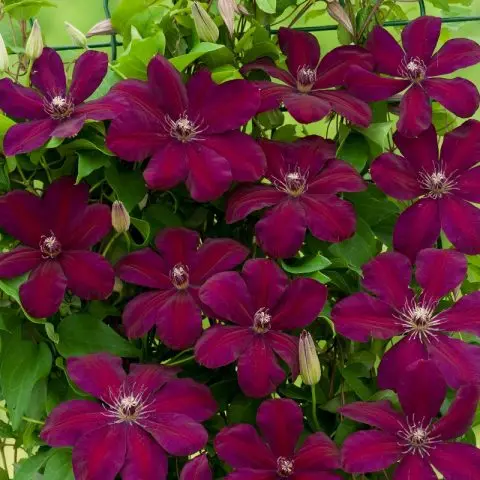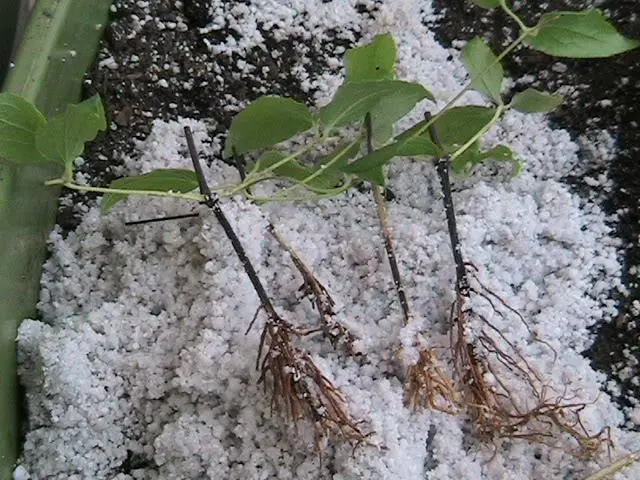Contents
Many novice flower growers, having seen the lush flowering of the king of vines – clematis, are already convinced in advance that such beauties will not survive in their harsh and unpredictable climate. Meanwhile, there are many varieties and hybrids of clematis, the care of which in summer differs little from most garden perennials, and at the same time they do not require special shelter for the winter. Clematis Mazowsze just belongs to such a group, although its luxurious flowering gives him the right to a special attitude towards himself.

Description of clematis Mazovshe
Clematis Mazovsze is a fairly new variety, bred in Poland by the famous breeder Stefan Marchinsky in 2006 and named after one of the regions in the central part of Poland – Mazovia. In the same year, this variety received a silver medal at an exhibition in Warsaw called “Green is Life”. The award is well-deserved, because, judging by the photos, descriptions and reviews on the forums of flower lovers, Clematis Mazowsze is a welcome guest on any personal plot.
One of the parents of Mazowsze is the William Kennett variety.
Plants of this clematis have good vigor and their shoots are able to grow up to 3,5 m in height. The Mazowsze variety belongs to large-flowered clematis for a reason. Flowers with velvet petals of a deep rich burgundy hue can reach 15-20 cm in diameter. 6 wide petals are folded very elegantly and at the beginning of flowering form a capacious bowl with deep cuts. The petals are 6-6,5 cm long and 4,5 cm wide. They are effectively narrowed at the ends. In the center of the flower, pale yellow pistils and creamy-pink coffee-colored dust particles form, as it were, a fluffy spherical pompom. With age, the shade of the upper petals of Clematis Mazowsze may fade slightly and becomes a pale burgundy color, and the flowers themselves become flatter, as can be clearly seen in the photo.

From below, on the petals of flowers, a wide white strip is visible, turning at the edges into a pale pink color.
Despite the fact that the flowers sit on long pedicels, they do not lean down, but all, as one, are directed upwards. Flowering is plentiful, under good conditions, sometimes you can not see green leaves at all behind the flowers. But do not expect it in the very first years after planting. Clematis must first take root well and develop a sufficient number of shoots, which is greatly facilitated by annual strong pruning.
Plants of the Mazowsze variety bloom quite late, in the last days of June. But they are able to please with their flowering until mid-September.
In addition, Clematis Mazowsze is a rather unpretentious plant. It can withstand a wide variety of light growing conditions, except perhaps deep shade and the north side of the site.
It is also a fairly frost-resistant variety, it can be safely planted in climatic zones from 4 to 9. The advantages of this clematis include its resistance to various diseases.
Clematis pruning group Mazowsze
Plants of the Mazowsze variety belong to the most stable and easy to care for pruning group – the third. For them, an annual strong pruning is provided in the fall, at the end of the growing season. They are cut at a level of 15-20 cm from the ground, leaving literally two or three buds on the bushes. Thus, the aerial part of the plant is easy to cover for the winter, and the underground roots are able to withstand significant frosts, up to -35-40 ° C.
A feature of clematis of the third pruning group is their budding only on young shoots of the current year. Naturally, they are almost always characterized by strong growth energy. Therefore, such a strong pruning is not capable of harming them. And, on the contrary, it will contribute to the better development and flowering of clematis. Therefore, even when planting in warm regions, where frost is not so terrible for clematis, their shoots should not be left without pruning. This can lead to a weakening of their growth and the cessation of flowering. Only for earlier flowering with adult bushes it is allowed to conduct experiments and leave 1-2 shoots for the winter, about 1-2 m long.

Planting and caring for clematis Mazowsze
It is desirable to plant this variety of clematis in spring or autumn. In summer, only container-grown plants are allowed to be planted, and for this it is necessary to wait for cool rainy weather.
If buds or especially young shoots have already appeared on the plants, then they can be planted only when the threat of return frosts has passed in the region. If the seedlings were purchased earlier, then it is advisable to store them in a cool place, at a temperature of about + 5 ° C. When shoots appear before planting, it is necessary to provide good lighting so that the shoots do not stretch or weaken from lack of light.
Clematis are able to grow and bloom in one place for 10-15 years, so the place for them must be chosen carefully. Moisture should not stagnate in it, it should be ventilated, but at the same time protected from strong winds.
The distance to the fence, wall or neighboring plants should be at least 60-70 cm. They dig a rather large hole, at least 50x50x50 cm, so that drainage and a sufficient amount of fertile land can fit in it.
The planting mixture is prepared from riding (with a neutral reaction) peat, humus (or compost) and a small amount of sand with wood ash.
Clematis really do not like overheating and excessive drying of the root zone. Therefore, after planting, the seedlings must be well shed and the roots covered with a layer of mulching organic material: rotted sawdust, straw, bark, compost. The neighborhood of small-sized annual flowers, especially marigolds and calendula, will have a good effect. They will be able to scare away a variety of parasites that can annoy clematis.
Care consists in regular and abundant watering, as well as top dressing. You need to feed at least 2 times per season, using organic or complex mineral fertilizers. But it is also important not to flood clematis. If the weather is rainy and humid, then there is no need for watering at all.
Young plants should be tied up at first to the supports. In the future, the leaves themselves will be able to cling to any lattice, and form a whole green flowering wall. These flowering vines are most often used to decorate arbors, create flowering hedges, arches, pyramids and columns.
Reproduction
Clematis Mazowsze can be propagated by one of the following vegetative methods:
- The easiest way is to simply divide the bush. True, for this you need to wait for its good growth, so you should not do this before the plant is 4-5 years old.
- Clematis are propagated by cuttings before flowering, also using fairly mature bushes. Cuttings with two buds are usually cut from the middle shoot. They root in a light and moist peat mixture under the cover of a film.

- Layering is another simple method of propagation, in which the selected shoots are placed in grooves up to 10 cm deep, leaving only the very end sticking out. It is better to separate the rooted plants next year.
Diseases and pests
Although Clematis Mazowsze is relatively disease resistant, it can suffer from verticillium wilt in high humidity. In this case, all affected parts of the plant (dried and withered) must be cut and burned. Then treated with foundation.
Of the pests, spider mites, various types of aphids, slugs, as well as underground inhabitants – mice, bears, can be dangerous for him. They must be fought against with insecticides or special traps.
Conclusion
Clematis Mazowsze will not leave anyone indifferent during its flowering period. Meanwhile, planting and caring for it will not cause any particular difficulties.
Reviews about clematis Mazowsze
Reviews of the large-flowered clematis Mazowsze are extremely positive and convey all its charm and attractiveness.










